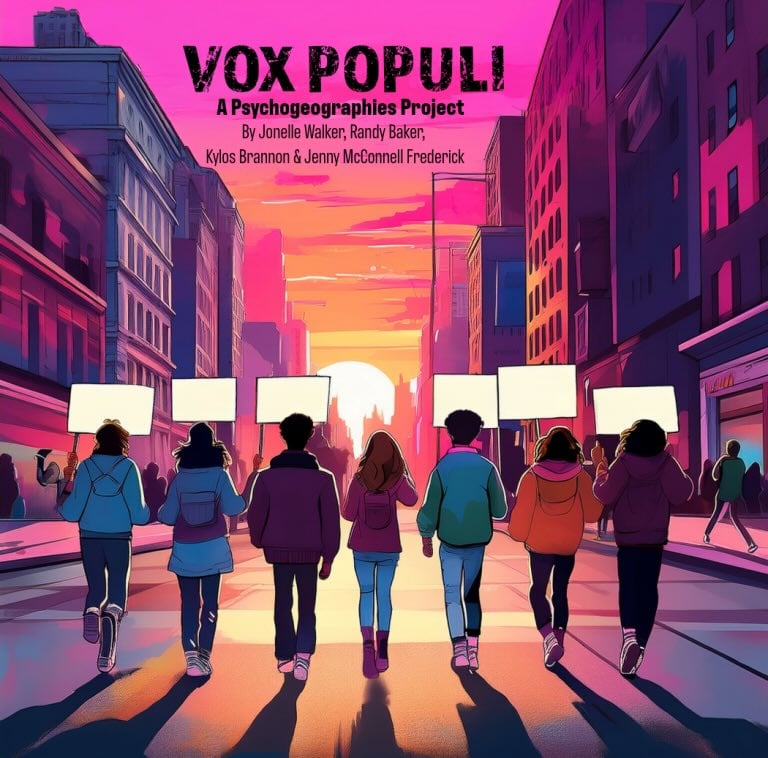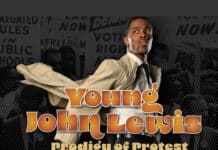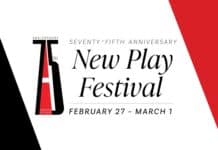In April, I opened my mailbox and found the instructions for my first participation in Vox Populi: A Psychogeographies Project. The Rorschach Theatre materials describe this 2025 adventure as follows:
“In Vox Populi, two teenagers fall through time after a shared moment in the woods. Trying to find their way home, they repeatedly land at different Washington DC protests throughout history. Each time encountering the city they thought they knew through the eyes of those who sought to change it.”
 In my envelope was Lucy Jane Salter’s AP History 1 assignment about the Vietnam War: a piece of writing that had been marked up by her history teacher with comments and corrections. I traveled to Ward Circle, carefully navigated getting to the circle itself, and took a photograph of the statue that was there of Artemas Ward (1727–1800) with its plaque commemorating him as a soldier who served in three wars, a graduate of Harvard College, and a judge and legislator to the Continental Congress, among his other accomplishments. Then I read Lucy’s AP History paper and her letter in which she explained that she had somehow gotten transported to 1970 during a demonstration against the Vietnam War that was taking place on the campus of American University.
In my envelope was Lucy Jane Salter’s AP History 1 assignment about the Vietnam War: a piece of writing that had been marked up by her history teacher with comments and corrections. I traveled to Ward Circle, carefully navigated getting to the circle itself, and took a photograph of the statue that was there of Artemas Ward (1727–1800) with its plaque commemorating him as a soldier who served in three wars, a graduate of Harvard College, and a judge and legislator to the Continental Congress, among his other accomplishments. Then I read Lucy’s AP History paper and her letter in which she explained that she had somehow gotten transported to 1970 during a demonstration against the Vietnam War that was taking place on the campus of American University.
“We walked up Nebraska Ave to see this sea of kids kinda my age. They were getting mobbed up in Ward Circle. They were all around this island with a statue guy but he had a cape on that said how many more?”
Lucy Ann desperately requested my help:
“If you’re reading this in 2025 or even 2024 or 2023, please go find Harvey Favreau-Johnson and tell him to get me the FREAK home!!”
I am 74 years old. I remember the demonstrations of the 1960s. What did I remember from this time? What did I miss? What did I understand that someone else might not? And who was Harvey Favreau-Johnson? So, full of curiosity, I set out to see what I could do to help Lucy Ann.
Rorschach’s Psychogeographies Project (of which Vox Populi is the most recent edition) is stimulating and grounding: an antidote to the tendency toward isolation we can find ourselves in these days.
The term psychogeographies was coined by philosopher Guy Debord in the 1950s. It refers to the life of the spaces that surround us and the way we human beings consciously and unconsciously absorb the presence of those spaces and arrange them into maps of our own meaning of a place. It’s what made (or makes) Washington, DC — home of Mumble/Mambo Sauce — Chocolate City. It’s what makes Dorothy’s home home. It’s what gives a place its resonance.
Following the instructions that Rorschach sends you monthly, you can travel to the places where the characters and events of the story you’re following have taken place. It can be a little strange walking past people who are enjoying their own lives and inhabiting their own story of the city, unaware of the drama that is even now surrounding them and that you are a part of.
The feeling that came to me while I was experiencing this is that of a “scavenger hunt.” Still, to describe Psychogeographies as a scavenger hunt vastly undervalues what the experience actually is. Still, there is some truth in that description. The experience is a scavenger hunt, but for the soul — the soul of a city, a people, or a nation.

Over the past four months, Vox Populi has proven to be a stirring engagement around the question of how we as a city, community, and culture make space to hear the young people around us and what the work is that goes into creating a community in which mutual respect is fostered and not forced. The title begs the questions “Who makes up the people?” And “What country and world is the Voice of the People asking for?”
Rorschach provides impeccable and playful curation of this series. The experiences are informative and planned with a view to the physical safety of participants and the inclusion of children, if that’s desired. You get a map and instructions for getting to the event site by public transportation or car (including parking options). Everything is put together with care. (For example, the artifacts that are included, such as posters announcing a march, are aged and distressed so as to resemble the time period that the action of the adventure takes place in.) The experience is structured to allow you to engage in it at whatever level you feel comfortable. Rorschach has nurtured relationships with various businesses around the city that also comprise the web of interrelationships that form the framework of the stories.
There are even options that allow you to explore the stories from the comfort of your home, if you prefer to do that. And at the end of the Psychogeographies season, there is a live event August 16 and 17 that caps the entire adventure. I am looking foward to seeing the characters in person and finding out what our protagonists and their parents have learned from each other about how to live together across differences.
Sometimes we can confine the concept of theater to something that is simultaneously exclusionary, disposable, and inaccessible. Vox Populi and the entire Psychogeographies project fly in the face of that idea.
Rorschach Theatre’s Vox Populi: A Psychogeographies Project is now running. All six chapters are mailed upon subscribing. See more information here.
Created by Randy Baker, Kylos Brannon, Jenny McConnell Frederick, and Jonelle Walker
SEE ALSO:
Rorschach Theatre announces 2025 KLECKSOGRAPHY event: ‘Vox Populi’ (news story, August 11, 2025)



